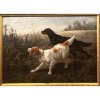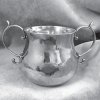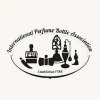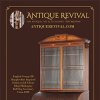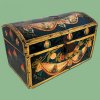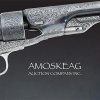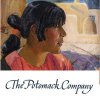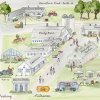The Schofield Collection of Political Memorabilia
October 18th, 2017
Robert C. Eldred Co., Inc., East Dennis, Massachusetts
Photos courtesy Eldred’s
All prices include buyer’s premium
By the time Daniel C. Schofield’s collection of political broadsides and other memorabilia came to auction at Eldred’s auction gallery in East Dennis, Massachusetts, on October 18, the staff had come to refer to the late collector as “Uncle Dan,” despite not ever having met him. Most staffers were involved closely in one task or more related to collecting the material, researching and cataloging it, and producing the catalog.
Schofield, a born and bred Rhode Islander who was universally esteemed, taught history for nearly four decades and spiced up his classes with objects from his ever-growing collection of political memorabilia. Josh Eldred, president of Eldred’s, said that over the course of consignment and cataloging, it became very clear that Schofield, who died in January 2017, was well loved by all who knew him.
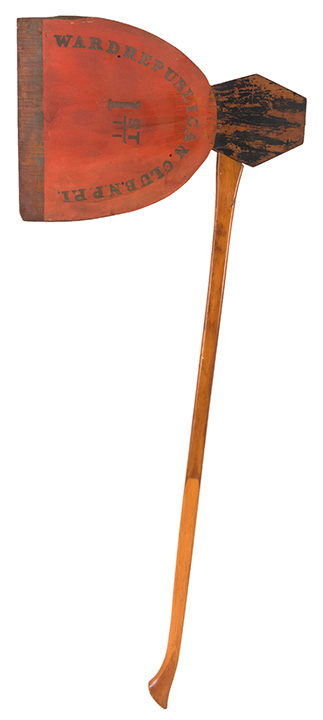
The highlight of the sale was this 66" long Railsplitters wooden campaign sign in the form of an ax, circa 1860, with a black and red wash finish that sold for $9600 (est. $800/1200). The head is stenciled on both sides “1st Ward. Republican. Club. N.P.R.I.,” possibly for a Newport, Rhode Island, Railsplitters club.
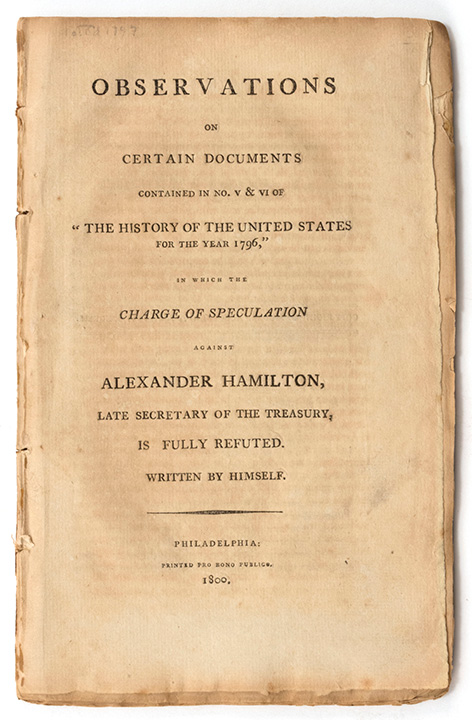
This pamphlet, Observations on Certain Documents Contained in No. V & VI of “The History of the United States for the Year 1796,” in Which the Charge of Speculation against Alexander Hamilton, Late Secretary of the Treasury, Is Fully Refuted. Written by Himself, was printed in 1800 pro bono publico by Hamilton’s political enemies and concerned Hamilton’s confession of his affair with Maria Reynolds and his admission that Maria and her husband, James, had set him up and blackmailed him. Estimated at $1500/2500, the pamphlet was hot stuff and sold for $7800.
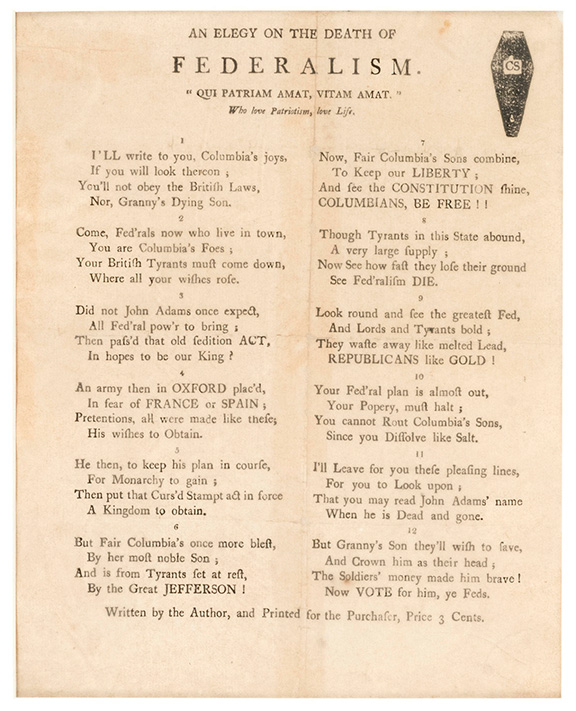
This rare (possibly unique) broadside, “An Elegy on the Death of Federalism,” is a 12-stanza poem extolling the virtues of Jefferson’s Federalism, written and published by its unidentified author for the 1800 election. Bearing an image of a coffin marked “CS,” likely for “Columbia’s Sons,” it sold for $6600 (est. $800/1200).
The sale of his collection, arranged in chronological order, was an antiquarian’s delight with hundreds on hundreds of unique objects. It was the unique quality of the objects and the low estimates that kept the 50 or 60 bidders in the gallery in their seats from the beginning of the sale at 10 a.m. to the very end just before 6 p.m. Phone and online bidders were equally steadfast to the very end, as was Eldred’s staff. Most lots sold in multiples of their estimates.
 Collectors knew Schofield as a dedicated collector, and interest in owning a part of his collection was high. Oddly, while online bidders pursued about three-quarters of the lots, they were successful only with about one-third of them. Local and national institutional participation was marked. Many of the top lots went to institutions.
Collectors knew Schofield as a dedicated collector, and interest in owning a part of his collection was high. Oddly, while online bidders pursued about three-quarters of the lots, they were successful only with about one-third of them. Local and national institutional participation was marked. Many of the top lots went to institutions.

The lyrics to “Jefferson & Liberty,” a campaign song for the 1800 election that describes the Alien and Sedition Acts as “the reign of terror,” brought $3000 (est. $200/300).
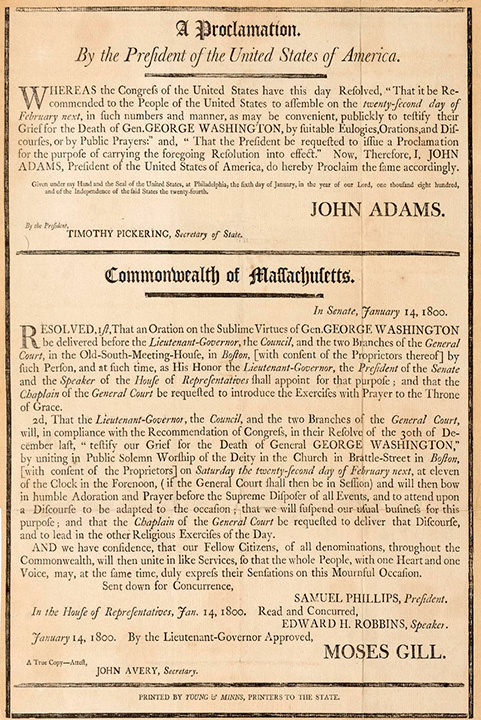
The January 14, 1800, broadside proclaiming a day of grief for George Washington on February 22 was authorized by President John Adams and Secretary of State Timothy Pickering in Boston, and by Massachusetts officials Samuel Phillips, who was president of the Senate, and Edward H. Robbins, Speaker of the House, and approved by Moses Gill, the lieutenant governor, and printed in Boston by Young & Minns, printers to the state. The same printers were called in 1805 to answer charges that they published in the New England Palladium “an indecent and libelous publication against the personal character of the President of the United States.” That would be Thomas Jefferson. This grief proclamation sold for $5700 (est. $800/1200).
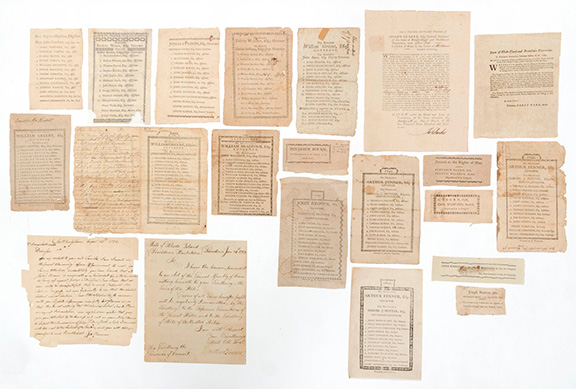
As a Rhode Islander, Schofield collected much in the way of historical documents pertaining to the state, known officially as the State of Rhode Island and Providence Plantations, the highlight of which was a lot consisting of 17 printed proxies, a 1783 broadside announcing that the General Assembly had passed an act denying voting privileges to those convicted of trade with the British, two letters, and a 1782 tax document for the town of Middletown. Estimated at $600/1000, the lot brought $8400.
Rhode Island may be the smallest state, but it’s among the largest and most creative in terms of tumultuous politics and its attendant and sundry personalities. Schofield’s collection sheds light on the degree of tempest in 19th-century politics in Rhode Island and other points, when not much in the way of scurrilous behavior was out of bounds. Then again, its position as smallest state in the Union may be a reason that some of the more important events in its history, such as the Dorr Rebellion, attracted little national notice.
For more information, contact Eldred’s at (508) 385-3116; website (www.eldreds.com).
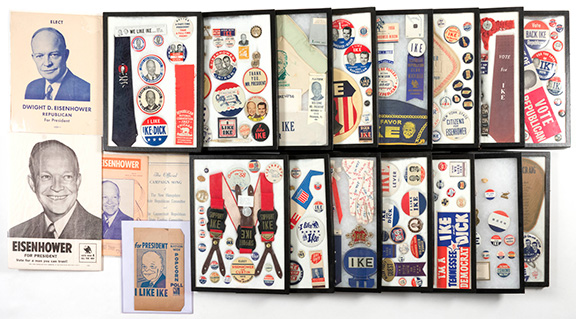
Dwight D. Eisenhower campaign material from the 1952 and 1956 elections included campaign signs, songbooks, a popcorn box, and around 250 additional objects, most of which are contained in 15 shadow box-style frames. The lot was estimated at $1500/2500 and sold for $4200.
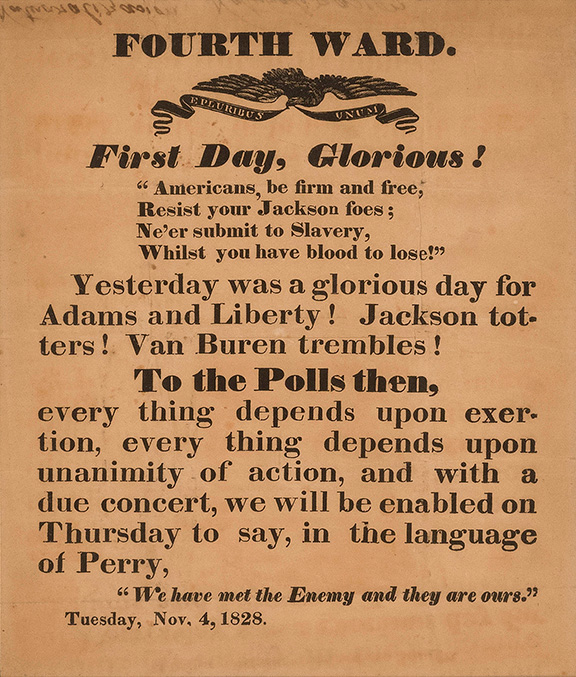
This woodblock print broadside, 10¼" x 8¼", urging support of John Quincy Adams at the Fourth Ward polls in the election of 1828 is decorated with an eagle with an E Pluribus Unum banner. It further exhorts, “Americans, be firm and free, Resist your Jackson foes; Ne’er submit to Slavery, Whilst you have blood to lose!” It brought $4200 (est. $300/400).
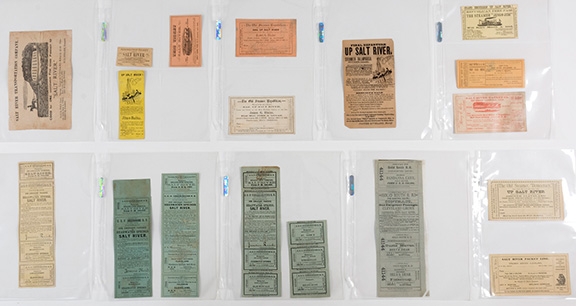
One lot included about 94 “Salt River” paper tickets and other ephemera (partially shown), along with a William Henry Harrison brass ticket for “Salt River,” from the 19th and 20th centuries taking aim at Winfield Scott, the Know-Nothings, Black Birds, Copperheads, the Confederacy, Tammany Hall, Abraham Lincoln, Grover Cleveland, Benjamin Harrison, Gen. George B. McClellan, Woodrow Wilson, Al Smith, and other figures heading up “Salt River.” The lot was estimated at $2000/3000 and brought $5400 from a buyer in the gallery.
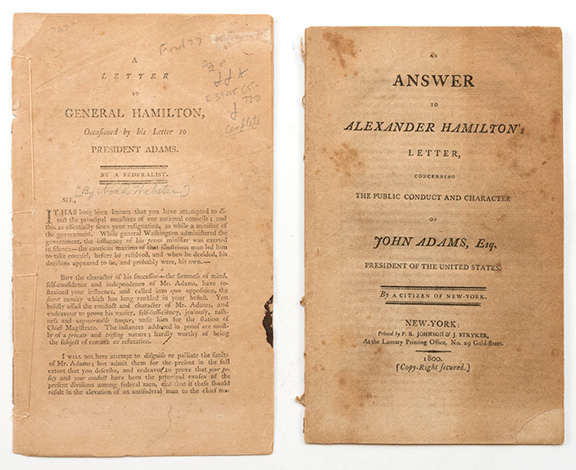
Two pamphlets rebutting Hamilton’s letter concerning Adams’s conduct and character, circa 1800, sold for $4200 (est. $300/500). Left, A Letter to General Hamilton, Occasioned by his Letter to President Adams. By a Federalist. A pencil notation suggests Noah Webster as the author. Right, An Answer to Alexander Hamilton’s Letter Concerning the Public Conduct and Character of John Adams, Esq. President of the United States. By a Citizen of New-York. It was “Printed by P.R. Johnson & J. Stryker, At the Literary Printing Office, No. 29 Gold-Street.” By James Cheetham, the letter suggests that Hamilton’s attack on Adams was motivated by egotism and jealousy and cites Hamilton’s affair with Maria Reynolds.
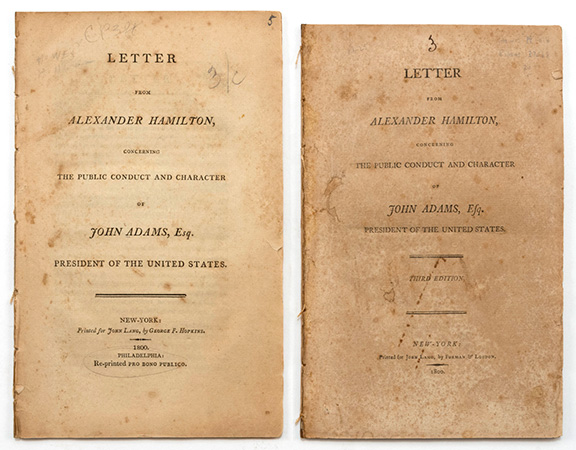
Two copies of a circa 1800 pamphlet, Letter from Alexander Hamilton, Concerning the Public Conduct and Character of John Adams, Esq. President of the United States, sold for $4200 (est. $500/1000). One copy was published in New York for John Lang by George F. Hopkins and reprinted pro bono publico in 1800. The other copy was the third edition, printed for John Lang by Furman & Loudon of New York.

A New York electoral ticket for the election of 1884 is rare. Such tickets were used as ballots, usually for a particular party, and included the names of electors. The one at hand was for the National Equal Rights Party for the election of Belva A. Lockwood for president and Marietta L. Stow for vice president. Lockwood was the second woman to run for president and the first to argue a case before the Supreme Court. The ballot brought $4800 (est. $1000/1500). A handwritten label attached to the slipcase revealed that Schofield had acquired the ballot for $1750 at an unspecified time.
Originally published in the December 2017 issue of Maine Antique Digest. © 2017 Maine Antique Digest
